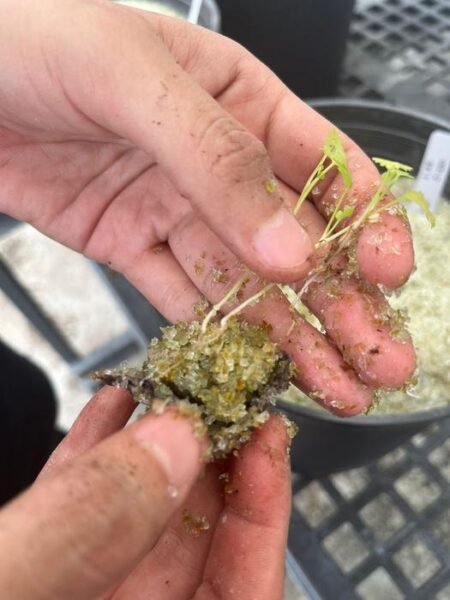A new study from the University of Texas Rio Grande Valley reveals that crushed glass from recycled bottles could be a game-changer for sustainable agriculture. Researchers found that mixing this glass with soil can boost plant growth and naturally combat fungal problems when growing popular salsa ingredients like cilantro, bell peppers, and jalapeños.
From Waste to Garden: How Recycled Glass Becomes Plant-Friendly
The project began when nanomaterial scientist Julie Vanegas and ecologist Teresa Patricia Feria Arroyo joined forces to explore innovative solutions for food security and sustainability. Drawing on Vanegas’ experience using recycled glass in coastal restoration, they wondered if the same material could benefit vegetable gardens.
Andrea Quezada, a chemistry graduate student leading the research, explained their motivation: “We’re trying to reduce landfill waste at the same time as growing edible vegetables. If this is viable, then we might be able to introduce glass-based soils into agricultural practices for people here in the Rio Grande Valley and across the country.”
The team sources their glass from a company that diverts bottles from landfills. These bottles are crushed into small particles and tumbled to smooth out sharp edges. The result is a material safe enough for both human handling and plant root growth.
Promising Results: Faster Growth and Natural Fungus Prevention
Initial tests focused on finding the ideal glass particle size for plant cultivation. The researchers discovered that fragments similar in size to coarse sand grains provided the right balance of oxygen flow and moisture retention for healthy root development.
In greenhouse experiments, the team grew cilantro, bell peppers, and jalapeños in various mixtures of traditional potting soil and recycled glass. While pots with more soil contained higher levels of essential nutrients (nitrogen, phosphorus, and potassium), the pH levels remained consistent across all mixtures – a crucial factor for plant health.
The early results are encouraging:
1. Plants grown in recyclable glass showed faster growth rates compared to those in 100% traditional soil.
2. Glass-containing pots retained more water, potentially reducing the need for frequent watering.
3. A mixture of more than 50% glass particles to soil appeared optimal for plant growth.
Perhaps most intriguingly, pots with 100% potting soil developed a fungal growth that stunted plant development. In contrast, pots containing any amount of recycled glass remained fungus-free. The researchers are currently investigating the mechanism behind this unexpected benefit.
Vanegas noted, “A weight ratio of more than 50% of glass particles to soil appears best for plant growth compared to the other mixtures we tested.” However, the team is waiting until harvest time to confirm which soil mixture produces the highest yields and tastiest vegetables.
Why It Matters:
This research has far-reaching implications for sustainable agriculture and waste reduction:
– Landfill Diversion: Finding new uses for glass bottles keeps them out of landfills, reducing waste and environmental impact.
– Water Conservation: If glass-containing soil retains moisture better, it could lead to more efficient water use in gardening and agriculture.
– Natural Pest Control: The apparent fungus-resistant properties of glass-containing soil mixtures could reduce the need for chemical fungicides.
– Urban Gardening: Lightweight, nutrient-rich soil alternatives could make container gardening more accessible in urban areas.
– Sustainable Food Production: As arable land becomes scarcer, finding alternative growing mediums is crucial for long-term food security.
Quezada emphasized the potential health benefits: “I think it’s really important to try to minimize the usage of any chemicals that can negatively affect our health. If we are able to reduce them, and help the community by collecting recyclables, then we can give people a better quality of life.”
While more research is needed to fully understand the long-term effects and optimal growing conditions, this study opens up exciting possibilities for turning waste into a valuable resource for sustainable food production. As climate change and population growth put increasing pressure on traditional agriculture, innovative solutions like recycled glass soil could play a crucial role in feeding the world while reducing our environmental footprint.


